Have you ever wondered, why do dogs have wet noses? This intriguing question is not just a matter of curiosity; it holds the key to understanding your furry friend’s health and behavior. Dogs’ noses are not only wet but also serve as a fascinating indicator of their well-being. In fact, a dog’s wet nose can tell you a lot about how they feel. Is it cold? Are they happy or anxious? In this post, we will discover the fascinating reasons behind this unique characteristic, and explore the science that makes their noses so special. You might be surprised to learn that a wet nose can help dogs detect scents more effectively, making them incredible companions for various tasks, including search and rescue. But that’s not all! We will also delve into common myths surrounding dog noses and their health implications. So, stay tuned as we unravel the mystery of dog noses and uncover answers to questions like, “Is a wet nose always a sign of a healthy dog?” and “What does it mean when their nose is dry?” Get ready to be amazed by the wonders of your canine companion!
The Science Behind Dogs’ Wet Noses: Understanding Their Unique Physiology

Have you ever noticed how your dog’s nose is always a bit damp? It’s a common sight, yet many of us might not give it much thought. But why do dogs have wet noses? This question goes beyond mere curiosity. The science behind it is both fascinating and essential to understanding our furry friends. Let’s dive into the unique physiology of dogs and explore the reasons behind their moist noses!
The Anatomy of a Dog’s Nose
A dog’s nose is a marvel of evolution. It’s not just for sniffing out treats or following scents. Here’s some key facts about their noses:
Sensitive Surface: The outer layer of a dog’s nose is called the rhinarium, which is typically wet. This wetness helps to enhance their sense of smell by capturing scent particles from the air.
Nasal Turbinates: Inside the nose, there are structures called turbinates that help to warm and humidify the air a dog inhales, allowing for better olfactory reception.
Sweat Glands: Unlike humans, dogs don’t sweat through their skin. Instead, they have sweat glands only in their paw pads, which means that their nose helps to regulate temperature and moisture.
Reasons for Wet Noses
So, why do dogs have wet noses? There’s several reasons that intertwine physiology, health, and behavior. Here’s a look at the fascinating reasons:
Enhanced Sense of Smell: The moisture on a dog’s nose helps to trap scent particles. When a dog sniffs, the wet surface picks up odors, making it easier for them to identify different smells. This is why dogs are often used in search and rescue missions.
Cooling Mechanism: Dogs cool down primarily through panting, but having a wet nose also contributes to their overall body temperature regulation. The moisture evaporates, providing a cooling effect.
Health Indicator: The condition of a dog’s nose can be a sign of their health. A healthy dog usually has a moist, cool nose, while a dry or cracked nose could indicate dehydration or illness.
Behavioral Signals: Dogs often lick their noses as a way to communicate. A wet nose can convey a sense of curiosity, excitement, or even submission, depending on the situation.
Historical Context of Dog Noses
Understanding why dogs have wet noses also involves a bit of history. Dogs have been domesticated for thousands of years, and through selective breeding, their noses have adapted to enhance their survival skills. For instance, breeds like Bloodhounds and Beagles have been honed to have even more sensitive noses, aiding in tracking and hunting.
Fun Facts about Dog Noses
Here are some quick facts that might surprise you about dog noses:
- Dogs have about 220 million scent receptors in their noses, compared to a human’s 5 million.
- The patterns on a dog’s nose are as unique as human fingerprints.
- Different breeds have different nose shapes, which can affect their sniffing abilities.
Comparisons with Other Animals
Dogs aren’t the only animals with wet noses, but their physiology is quite unique. Here’s a quick comparison with other animals:
| Animal | Nose Type | Wetness Level | Sensitivity Level |
|---|---|---|---|
| Dogs | Wet and cold | High | Very high |
| Cats | Dry and warm | Low | High |
| Elephants | Large and moist | Moderate | Very high |
| Pigs | Wet and sensitive | High | Moderate |
Practical Examples of Nose Health
It’s important to monitor your dog’s nose health. Here are some practical tips to ensure your dog’s nose stays in tip-top shape:
Hydration: Make sure your dog has access to fresh water at all times, especially in hot weather.
Check for Cracks: If you notice any cracks or dryness, consult your veterinarian, as it could be a sign of dehydration or other health issues.
Routine Vet Visits: Regular check-ups can help spot any potential problems before they become serious.
Understanding why dogs have wet noses gives us a greater appreciation for their unique physiology and enhances our bond with them. The moisture on their noses is more than just a quirk; it’s a vital part of how they interact with the world around them. Whether they’re sniffing out a favorite toy or just giving you a wet-nosed greeting, those damp noses are a true testament to the incredible nature of our canine companions.
Why Do Dogs Have Wet Noses? 5 Fascinating Facts That Will Surprise You
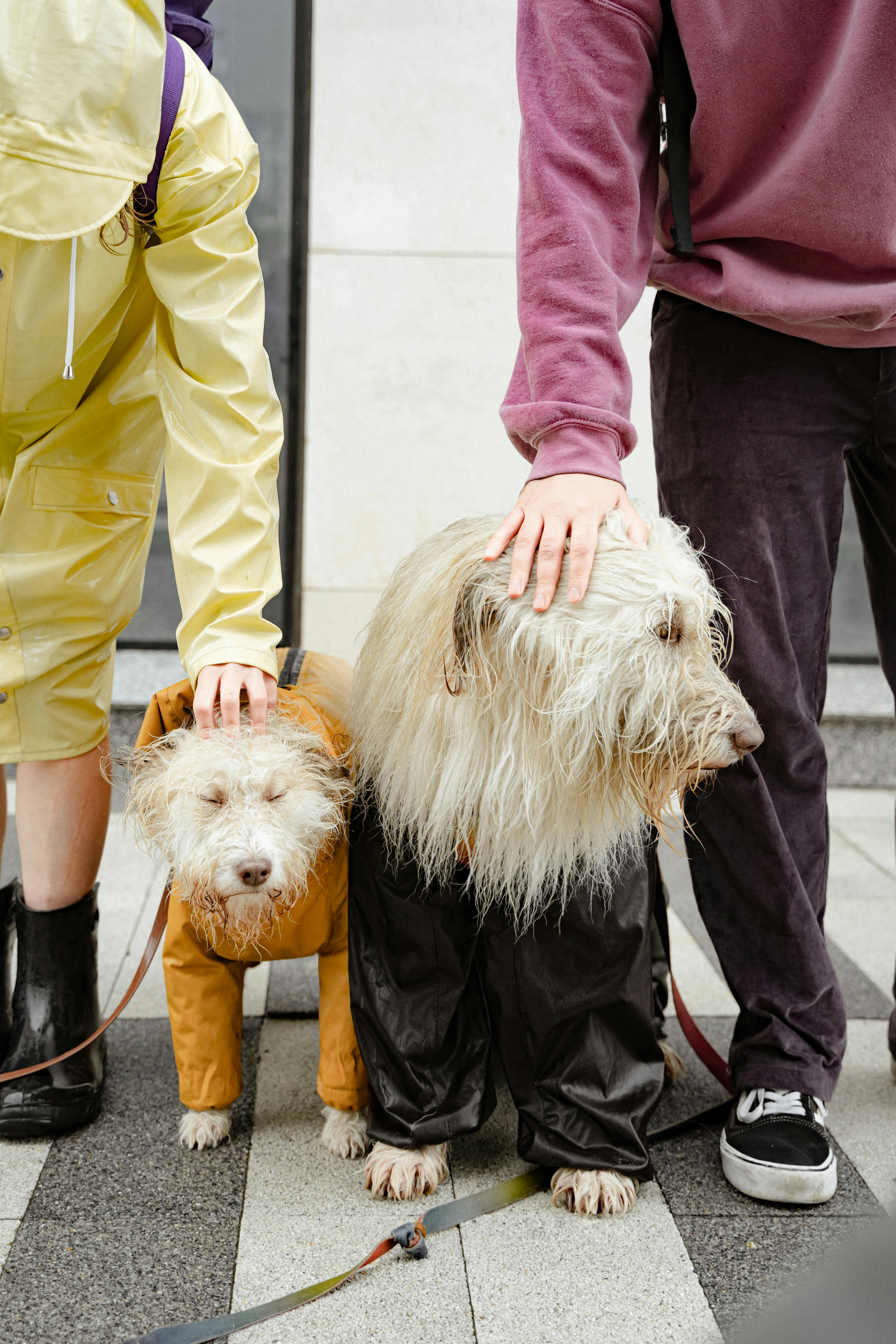
Dogs are wonderful companions, and they have these adorable wet noses that seem to capture attention. But have you ever stopped to wonder why do dogs have wet noses? It’s a question that sparks curiosity in many pet owners, and the answers might just surprise you. Here are five fascinating facts that explain the science behind those moist snouts.
Dogs’ Noses and Their Health
One of the primary reasons dogs have wet noses is related to their health. A wet nose can be a good indicator of a dog’s overall well-being. When a dog’s nose is moist, it can help them regulate their body temperature. Dogs do not sweat like humans, instead, they rely on their noses to dissipate heat. This is especially important during warm weather or after a good play session.
- Temperature Regulation: A wet nose helps cool down the dog’s body.
- Health Indicator: A consistently dry nose may signal potential health concerns.
- Hydration: It shows that the dog is properly hydrated.
The Role of Scent in Their World
Dogs have an incredible sense of smell, which is a key part of how they interact with the world. A wet nose enhances their olfactory capabilities. When a dog sniffs something, the moisture on their nose helps to capture scent molecules from the air. This allows them to detect smells more effectively.
- Moisture Capture: The wetness helps to trap tiny scent particles.
- Improved Smell Sensitivity: Dogs can distinguish between different scents better with a wet nose.
- Communication: Dogs often use their sense of smell to communicate with other dogs and to explore their environment.
Evolutionary Perspective
Looking back in time, the evolution of dogs has played a significant role in their nose’s characteristics. Dogs are descendants of wolves, and wolves also have wet noses. This feature likely evolved as a survival mechanism. A wet nose could help ancestral canines hunt more effectively by enhancing their ability to smell prey.
- Survival Mechanism: Wet noses enhance hunting abilities.
- Genetic Trait: Passed down from their wolf ancestors.
- Adaptation: The feature has remained because of its usefulness throughout generations.
Dogs’ Noses and Temperature
You might think that a wet nose is just for looks, but it actually serves a scientific purpose. Dogs’ noses can be cooler than the rest of their body. This coolness is partly due to the moisture that evaporates from their noses. When the moisture evaporates, it cools the skin of the nose, which in turn helps to lower the dog’s body temperature.
- Evaporative Cooling: Similar to how sweating cools humans.
- Natural Air Conditioner: Dogs’ noses help maintain a comfortable body temp.
- Health Monitoring: A warm, dry nose could indicate illness or fever.
Fun Facts about Dogs’ Noses
Now that we understand the reasons behind the moistness, here are some fun facts that might surprise you:
- Unique Nose Prints: Just like fingerprints in humans, each dog has a unique nose print that can be used for identification.
- Sensitivity: A dog’s nose is estimated to be 40 times more sensitive than that of a human.
- Nose Color: The color of a dog’s nose can vary based on breed; some have black, others brown, and some even have spots!
- Nasal Structure: Dogs have a complex nasal structure that allows them to separate smells, enabling them to pick out individual scents from a mixture.
- Breed Differences: Different breeds may have different nose characteristics, which can affect their smelling abilities.
In summary, the wet nose of a dog is not just a cute feature; it serves several important functions that are crucial for their health and survival. Understanding why do dogs have wet noses gives us a better appreciation for these amazing animals. So, the next time you see your furry friend with that adorable, moist nose, remember that it’s just one of the many wonders of nature that makes dogs so special.
The Role of Moisture: How a Wet Nose Affects Your Dog’s Sense of Smell
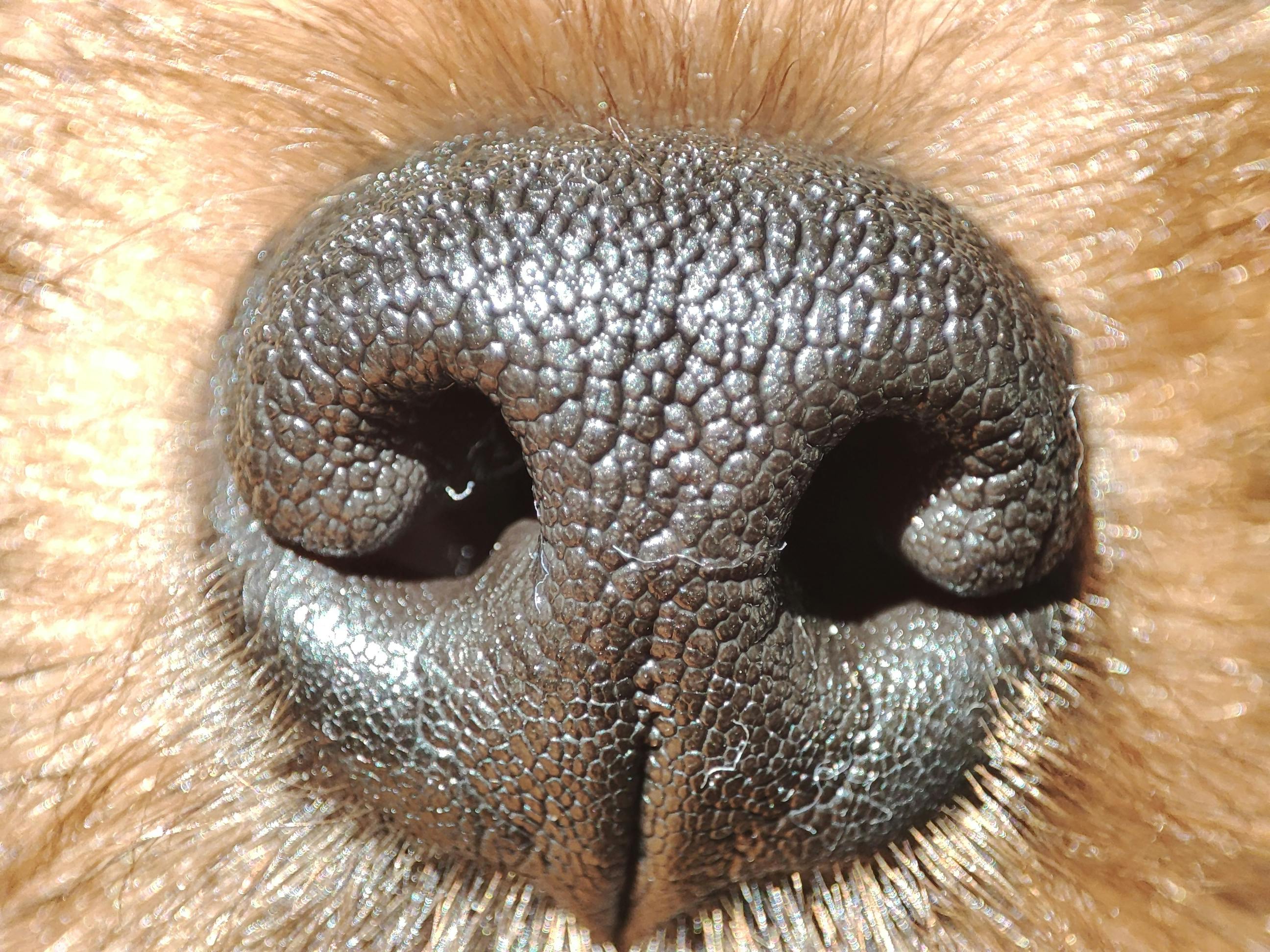
Dogs are some of the most fascinating creatures on the planet, and one of the most interesting things about them is their noses. If you ever wondered why do dogs have wet noses, you are not alone. Many pet owners, animal lovers and even scientists ask the same question. The moisture on a dog’s nose plays a significant role in their ability to smell, which is incredibly important for their interaction with the world around them.
The Science Behind the Wet Nose
First, let’s dive into the biology. A dog’s sense of smell is one of the most powerful in the animal kingdom, and it is estimated that dogs have about 220 million scent receptors compared to about 5 million in humans. A wet nose enhances this ability. Here are some reasons why:
- Moisture Helps Capture Scents: The wetness on a dog’s nose helps to trap scent particles. When these tiny particles land on the moist surface, they dissolve slightly, which helps the dog to detect and identify them more easily.
- Temperature Regulation: A wet nose also helps regulate a dog’s body temperature. When they lick their noses, it cools them down, which is especially useful during hot weather.
- Health Indicator: A dog’s nose can indicate its health. A consistently dry or warm nose might signal illness, while a wet nose is generally a sign of a healthy dog.
Why is the Nose Wet?
You may be curious about the specifics of why dogs have wet noses. Here’s a more detailed breakdown:
- Licking: Dogs often lick their noses, which not only keeps them wet but also aids in their sense of smell by picking up more scent particles.
- Sebaceous Glands: The skin on a dog’s nose contains sebaceous glands that produce oil, which also contributes to moisture.
- Environmental Factors: Weather conditions and humidity can affect how wet a dog’s nose is. For instance, a dog might have a drier nose during colder months.
Fascinating Facts About Dog Noses
Here are some fun and intriguing facts about dog noses that you might not know:
- Unique Nose Prints: Just like a human fingerprint, every dog has a unique nose print. This could theoretically be used to identify them.
- Scent Discrimination: Dogs can distinguish between different scents even when they are mixed together. This is why they are often employed in search and rescue operations.
- Sense of Smell and Emotion: Dogs can smell human emotions. They can detect stress or anxiety through scent changes in sweat and other bodily fluids.
The Role of Moisture in Smell
Moisture is crucial for dogs when it comes to using their noses. Here’s how it works:
- Scent Detection: When a dog inhales, scent molecules are captured by the moist surface of the nose, allowing them to analyze and interpret various smells.
- Enhanced Sensitivity: The moisture increases the sensitivity of the receptors. Thus, they can detect even the faintest odors.
- Communication: Dogs also use their sense of smell to communicate with other dogs. The moisture on their noses helps them process pheromones and other scent signals.
Comparing Dog Noses to Human Noses
It might be interesting to compare dog noses with human noses. Here are a few key differences:
- Number of Receptors: As mentioned, dogs have around 220 million receptors compared to only 5 million in humans.
- Functionality: While humans primarily use their noses for breathing and tasting, dogs rely on their noses for understanding the environment and communication.
- Moisture Levels: Human noses can get dry, but they don’t rely on moisture for scent detection as dogs do.
Practical Examples of Nose Use in Dogs
Understanding the importance of a dog’s nose can help in various practical ways:
- Training: Knowing that dogs rely heavily on their nose can help in training. Using scent cues can be beneficial in teaching dogs commands.
- Health Monitoring: Keeping an eye on your dog’s nose can help you monitor their health. If the nose is consistently dry, it may be worth consulting with a vet.
- Activities: Engaging in scent games can be a fun way to stimulate your dog’s mind and enhance their natural abilities.
The moisture on a dog’s nose plays a critical role in their ability to smell and interact with their environment. From aiding in hunting to reading emotional cues, a wet nose is more than just a cute feature; it’s an essential part of a dog’s sensory toolkit. Understanding why do dogs have wet noses gives us deeper insights into their behavior and health. Every dog owner should appreciate the fascinating biology behind this unique characteristic.
Is a Wet Nose a Sign of a Healthy Dog? Debunking Common Myths

Is a wet nose a sign of a healthy dog? This is a question many dog lovers ask. There’s been lot of myths and misconceptions around this topic. Let’s dig into the facts and uncover the truth about those adorable, damp noses and why dogs have them in the first place.
Why Do Dogs Have Wet Noses?
First off, dogs noses are wet for a few good reasons. It’s not just because they enjoy splashing around in puddles or licking things. Here are some interesting facts about why your furry friend might have a wet nose:
Temperature Regulation: Dogs don’t sweat like humans do. Instead, they cool themselves off through their noses. The moisture on their noses helps to absorb heat, keeping them cool in warm weather.
Scent Detection: A wet nose can actually enhance a dog’s sense of smell. The moisture helps to trap scent particles, which makes it easier for them to pick up on different smells. This is particularly useful when they are tracking or hunting.
Health Indicator: Many people believe that a wet nose indicates good health. However, while a wet nose can be a sign of a healthy dog, it’s not the only indicator. A dog can have a wet nose and still be sick.
Behavioral Reasons: Sometimes a dog might be licking their nose, which can make it wet. This action can indicate they are either anxious, excited, or just plain curious about something they’ve sniffed.
Debunking Common Myths
Now, let’s address some of the common myths surrounding wet noses. These misconceptions can lead to misunderstandings about your dog’s health and behavior.
Myth 1: A Wet Nose Means a Dog is Healthy
While a wet nose can be a sign of a healthy dog, it’s not a definitive indicator. Dogs can have dry noses and still be perfectly fine. Monitor other signs of health, like energy levels and eating habits.Myth 2: All Dogs Have Wet Noses
Some breeds are more prone to having dry noses. For example, breeds like Bulldogs and Boxers may have drier noses naturally. This doesn’t mean they’re unhealthy.Myth 3: A Wet Nose is Always Cold
Many people think a wet nose should feel cold. While it often does, it can also be warm and wet, particularly if the dog has been active. Temperature alone isn’t a solid health indicator.
Understanding Dog Nose Variations
Different dogs have different nose types, and that variation can influence how wet or dry their noses are. Here’s a quick breakdown of some common dog breeds and their nose characteristics:
Labrador Retrievers: Typically have a moist and cold nose, which is often a sign of excitement.
Pugs: Often have warm and slightly dry noses due to their facial structure.
Siberian Huskies: Their noses can vary greatly; some might be wet while others may appear dry depending on the weather and their activity level.
Dachshunds: Usually have smooth and warm noses, and these can be dry sometimes.
Practical Tips for Dog Owners
As a dog owner, it’s important to keep an eye on your pet’s health. Here are some practical tips to ensure your dog stays healthy, regardless of their nose moisture level:
Regular Vet Check-ups: Just because a dog has a wet nose doesn’t mean they are healthy. Regular vet visits are essential to monitor overall health.
Hydration: Ensure your dog has plenty of fresh water available. Dehydration can lead to a dry nose.
Watch for Changes: If you notice a sudden change in your dog’s nose moisture, it could be a sign of something wrong. Pay attention to other symptoms like lethargy or changes in appetite.
Environment Matters: Weather can affect nose moisture. Hot, dry conditions can lead to a drier nose.
Diet: A healthy diet can contribute to overall skin and coat health, which includes the nose.
Ultimately, while a wet nose can be an endearing trait of dogs, it shouldn’t be the sole indicator of their health. Understanding the reasons behind why dogs have wet noses and debunking the myths surrounding them is crucial for any dog owner. By doing so, you’ll be better equipped to ensure your furry friend stays happy and healthy, regardless of their nose condition. Remember, being a responsible pet owner involves more than just looking at their noses!
The Importance of Hydration: Why Your Dog’s Nose Needs to Stay Wet
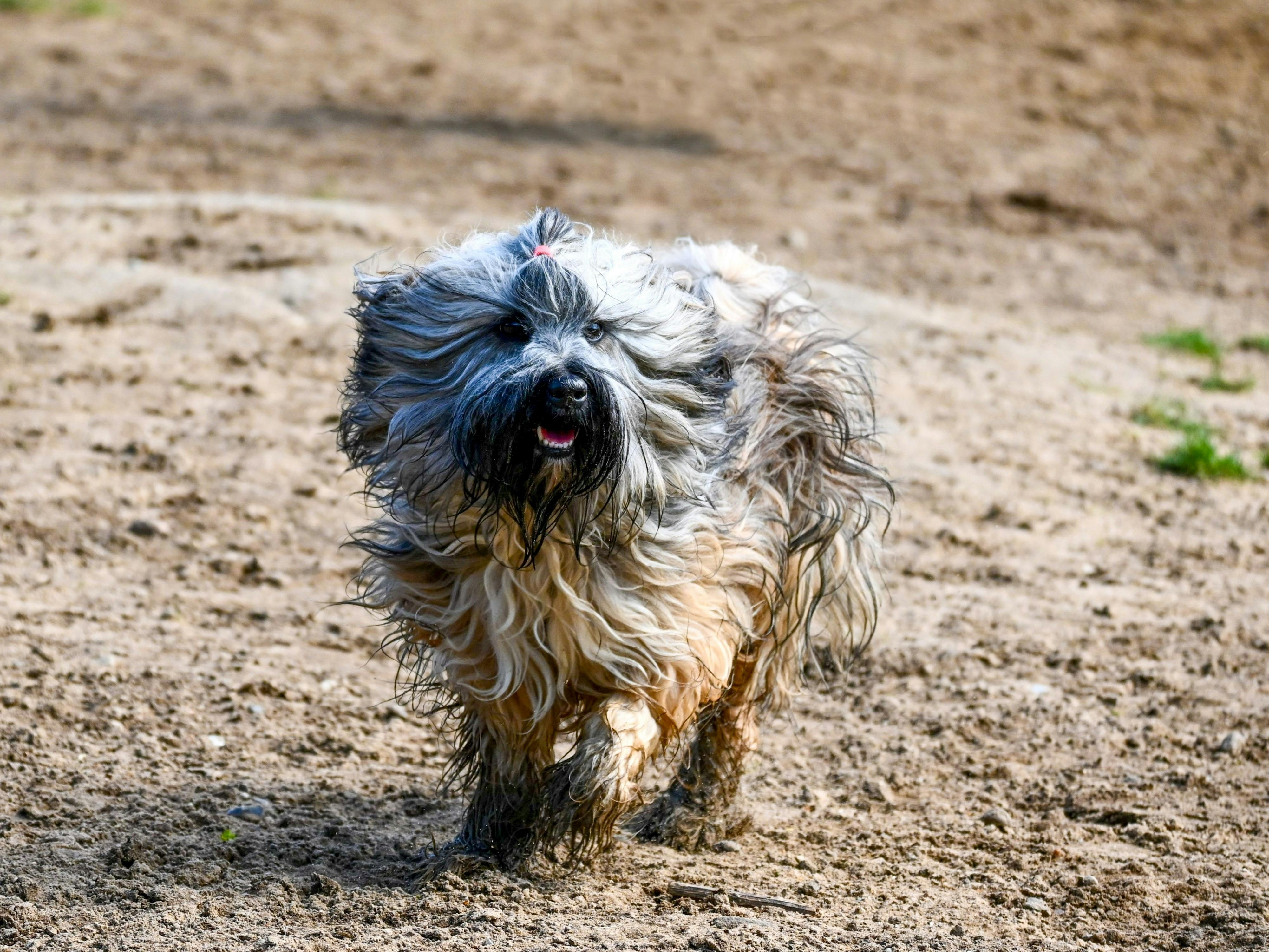
Dogs, they are our loyal companions, and they’ve got many unique traits. One of the most interesting things about them is their wet noses. You ever wonder why do dogs have wet noses? It’s not just for show! Keeping their noses moist is actually really important for their health and behavior. Let’s dive into the importance of hydration and discover why your dog’s nose needs to stay wet.
The Science Behind a Dog’s Wet Nose
A dog’s nose is not just a cute feature; it plays crucial roles. The wetness of a dog’s nose comes from mucous glands, which help them to absorb scent molecules. This helps them smell better, which is why dogs are such great sniffers! But what exactly makes their noses wet?
- Mucous Production: The mucous glands produce moisture to keep the nose wet.
- Temperature Regulation: Wet noses help cool down dogs, especially on hot days.
- Enhanced Sense of Smell: A wet surface can trap scent particles, making it easier for dogs to detect them.
Why Hydration Matters
Just like humans, dogs rely on water to stay healthy. Hydration is critical for many bodily functions, including temperature control, digestion, and joint lubrication. A dog’s nose can give you clues about their hydration levels. If their nose is excessively dry, it might indicate they need more water.
- Dogs should drink plenty of water each day.
- Factors like activity level, breed, and weather can affect their hydration needs.
Wet Nose and Health Indicators
A wet nose can sometimes signal a healthy dog, while a dry nose may not always mean something is wrong. Here are some health indicators related to your dog’s nose:
- Wet and Cool Nose: Usually a sign of a healthy and hydrated dog.
- Dry Nose: Can be normal, but if it’s persistent, it might indicate dehydration or illness.
- Cracked or Bleeding Nose: This is a sign of a serious health issue and requires a vet’s attention immediately.
Fascinating Reasons for Wet Noses
There’s more to a dog’s wet nose than meets the eye! Here’s a list of fascinating reasons:
- Scent Detection: Dogs can smell up to 100,000 times better than humans. A wet nose enhances this ability.
- Emotional Connection: Dogs often use their noses to gather information about their environment and the emotions of other animals or humans.
- Cooling Mechanism: Dogs don’t sweat like humans. Instead, they rely on their noses to help cool down their bodies.
How to Ensure Your Dog Stays Hydrated
Keeping your dog hydrated is essential for overall health. Here is a simple list of tips:
- Provide Fresh Water Daily: Change your dog’s water at least once a day to keep it clean.
- Monitor Water Intake: Keep an eye on how much your dog drinks. If they seem to be drinking less, consult a vet.
- Encourage Drinking: Some dogs like running water. You might consider getting a pet fountain.
- Wet Food: Including wet food in their diet can also help increase their water intake.
Common Myths About Dog Noses
There are some common misconceptions about dogs and their noses. Here are a few:
- Cold Nose Means Healthy: While a cold, wet nose is a good sign, a warm, dry nose doesn’t always mean your dog is sick.
- Dogs Can’t Smell When Wet: Actually, a wet nose enhances their sense of smell!
- All Dogs Have Wet Noses: Some breeds, particularly those with short muzzles, may have drier noses naturally.
Final Thoughts
Understanding why dogs have wet noses and the importance of hydration can help you be a better pet owner. Keeping your dog’s nose moist is more than just a cute trait; it’s a vital part of their health and wellbeing. Make sure to provide them with plenty of fresh water and monitor their overall hydration. With love and care, your furry friend will stay healthy, happy, and hydrated!
Can a Dog’s Nose Predict Health Issues? Exploring the Connection

Can a dog’s nose predict health issues? This question has been around for a while, sparking curiosity among dog owners and enthusiasts alike. Dogs have an incredible sense of smell, which leads many to believe that their noses might be able to detect certain health problems in humans or themselves. But, what’s the real story behind those wet noses? And why exactly do dogs have wet noses in the first place? Let’s dive into the fascinating world of canine olfaction and physiology.
The Marvel of Canine Olfaction
Dogs have an extraordinary sense of smell, which is estimated to be anywhere from 10,000 to 100,000 times more sensitive than humans. This ability is due to the structure of their noses. They have more olfactory receptors than humans—around 220 million compared to our mere 5 million. This means they can pick up on scents that we can’t even begin to detect.
- Dogs can detect certain diseases like cancer or diabetes with their noses.
- They can also sense changes in their owner’s body chemistry, which could indicate a health issue.
- Some studies have shown that dogs can be trained to detect specific odors associated with illnesses.
Can Dogs Really Smell Health Issues?
There’s a growing body of evidence suggesting that dogs can indeed sense some health problems. For instance, a study published in the journal BMC Cancer found that dogs could accurately sniff out lung cancer in breath samples 97% of the time. Another example is the case of diabetic alert dogs, which help their owners by detecting changes in blood sugar levels.
However, it’s not just about detecting diseases. Dogs can also sense when their human companions are anxious or depressed. They seem to pick up on subtle changes in behavior or body language.
Some key points to note:
- Dogs might alert their owners to potential health issues, but they cannot replace professional medical advice.
- Training is often required for dogs to accurately detect specific conditions.
- The ability to sense health issues can vary greatly between individual dogs.
Why Do Dogs Have Wet Noses?
Now, let’s turn our attention to why dogs have those moist noses. A dog’s nose is wet for several reasons, and it plays a crucial role in their sense of smell.
Enhanced Scent Detection: The moisture on a dog’s nose helps to capture scent particles. When a dog sniffs, the wet surface traps odors, enhancing their ability to identify different smells.
Cooling Mechanism: Just like humans sweat, dogs sweat through their paw pads and also regulate their body temperature through their noses. This moisture evaporates, helping them to cool off.
Health Indicator: The state of a dog’s nose can also reflect its health. A healthy dog’s nose is usually cool and moist, while a dry or cracked nose might indicate dehydration or illness.
The Anatomy Behind a Dog’s Nose
A dog’s nose isn’t just a simple organ; it’s quite complex. Here’s a breakdown of its anatomy:
- Nasal Cavity: Dogs have a large nasal cavity filled with turbinates, which are bony structures that help filter and warm the air they breathe.
- Jacobsen’s Organ: This organ helps dogs analyze smells. It allows them to detect pheromones and other chemical signals.
- Nasal Mucosa: This moist lining helps trap dirt and particles, ensuring that the air that reaches their lungs is clean.
Fun Facts About Dogs’ Noses
- A dog’s nose print is as unique as a human fingerprint.
- The color of a dog’s nose can vary widely, from black to liver to pink.
- Dogs can differentiate between different odors, even at very low concentrations.
What Affects a Dog’s Nose?
While a wet nose is typically a sign of a healthy dog, there are factors that can influence its moisture level:
- Weather: Hot, dry climates can lead to dryer noses.
- Health Conditions: Illnesses such as fever or dehydration can make a dog’s nose dry.
- Allergies: Dogs suffering from allergies might have a change in nose moisture.
In summary, dogs are remarkable creatures with amazing abilities, especially when it comes to their sense of smell. Their wet noses are not only a charming feature but also play a vital role in their health and interaction with the environment. Understanding why dogs have wet noses and their potential ability to sense health issues can deepen our appreciation for these furry companions. Whether you’re a dog owner or just a fan, there’s always more to learn about these fascinating animals!
7 Reasons Why Dogs’ Wet Noses Are Essential for Their Communication

Dogs are known for their loyal companionship and wagging tails, but one of the most fascinating aspects of these furry friends is their wet noses. If you’ve ever wondered why do dogs have wet noses, you’re not alone! There’s actually a lot of interesting science behind it. Here are seven reasons why dogs’ wet noses are essential for their communication and overall well-being.
1. Sense of Smell Enhancement
Dogs have an incredible sense of smell, and their wet noses play a key role in this. A wet nose helps to absorb scent chemicals from the air, enhancing their olfactory receptors. It’s like a sponge that soaks up all the smells around them. This means that when your dog sniffs something, they can gather more detailed information about it. This is super important for social interactions among dogs.
- Dogs have up to 300 million olfactory receptors.
- Humans have about 5 million.
- Wet noses improve the absorption of scent particles.
2. Temperature Regulation
Another fascinating reason why dogs have wet noses is temperature regulation. Dogs do not sweat like humans do. They rely on their noses to help cool down. When a dog’s nose is wet, it aids in evaporative cooling. This is especially important in warmer weather, helping to maintain their body temperature.
- Dogs pant to cool down, but their noses help too.
- A wet nose can indicate good hydration levels.
3. Communication Tool
Dogs communicate a lot through their body language and scents. A wet nose can signal various emotions or states of being. When dogs greet each other, they often touch noses, and this is a way of sharing information. A dog’s wet nose can also signal comfort or excitement.
- A dry nose may indicate stress or illness.
- Different wetness levels can indicate different moods.
4. Health Indicators
A wet nose can also serve as an important health indicator for your dog. Generally, a healthy dog will have a cool, moist nose. If a dog’s nose becomes excessively dry or hot, it may be a sign of illness or dehydration. Keeping an eye on your dog’s nose could help catch health issues early.
- Normal nose temperature: cool and moist.
- Dry or cracked noses can indicate health concerns.
5. Sensory Exploration
Dogs use their noses to explore the world around them. Their wet noses are not just for smelling; they are also crucial for tactile exploration. Dogs often nudge or poke their noses into things, and a wet nose can enhance their ability to feel textures and surfaces. This tactile feedback is vital for their understanding of their environment.
- Dogs can gather information about objects through smell and touch.
- Wet noses can help them navigate different terrains.
6. Bonding with Humans
Dogs are social animals, and their wet noses help them bond with their human companions. When dogs nuzzle or nudge you with their noses, it’s often a sign of affection. This behavior can foster a stronger emotional connection between you and your pet, enhancing your relationship.
- Nose nudging can be a way of seeking attention or affection.
- Dogs often use their noses to greet and comfort their owners.
7. Detecting Changes in Environment
Dogs are incredibly sensitive to changes in their environment, and their wet noses help them do this. A wet nose can pick up on pheromones and other scent signals that indicate changes in their surroundings. For example, dogs can sense when someone is anxious or happy based on their scent. This ability to read the emotional state of other beings is crucial for their social interactions.
- Dogs can detect subtle changes in human emotions.
- Their noses can alert them to potential dangers.
In summary, the wet noses of dogs serve many important functions that aid in their communication, health, and sensory experiences. From enhancing their sense of smell to helping regulate their body temperature, wet noses are essential for our canine companions. So the next time you wonder why do dogs have wet noses, remember these fascinating reasons! It’s just another quirky aspect of what makes dogs such incredible animals. Embrace every wet-nosed nuzzle, knowing it’s a little piece of their unique communication toolkit.
What Your Dog’s Wet Nose Says About Their Emotions: A Deep Dive

Have you ever noticed how your dog’s nose can be quite wet, and you wondered why is that? Well, it turns out that it’s not just a random quirk. Your dog’s wet nose says a lot about their emotions and health, and understanding this can deepen the bond between you and your furry friend. Let’s dive into this fascinating topic and unravel the mysteries behind those wet noses.
Why Do Dogs Have Wet Noses?
Dogs have wet noses for several reasons, and it’s more than just a fun fact. Here’s a breakdown of why dogs are known to have these moist noses:
Temperature Regulation: Just like humans sweat, dogs use their noses to help regulate body temperature. A wet nose cools them down, which is especially important during the hot days.
Enhanced Sense of Smell: Dogs have an incredible sense of smell, and a wet nose actually helps them sniff better. The moisture in their nose captures scent particles more effectively, making their sense of smell even sharper.
Health Indicator: A wet nose can also be a sign of good health. Typically, a healthy dog’s nose is moist and cool, while a dry or cracked nose might indicate illness or dehydration.
Emotional States: Believe it or not, a dog’s nose can also reflect their emotional state. For example, when they’re excited or happy, their noses tend to be wetter.
The Emotional Connection: What Your Dog’s Wet Nose Tells You
Understanding your dog’s emotions can be tricky, but their wet noses can give you some clues. Here’s a look at what different states might mean:
Excitement: When your dog is happy, such as when you come home or during playtime, their nose may get even wetter. This is due to increased activity and excitement levels.
Anxiety or Stress: If your dog is feeling anxious or stressed, you might notice their nose becoming dry. Along with other signs, like whining or pacing, this could indicate that they need some comfort.
Contentment: A relaxed dog will usually have a warm and moist nose. If your pup is curled up next to you, their wet nose could be a sign of their comfort and happiness.
The Science Behind Wet Noses
The science behind why dogs have wet noses is quite interesting. Here’s a quick rundown of how this works:
Mucous Membranes: Dogs have mucous membranes in their noses that produce moisture. This moisture helps in trapping scents and also keeps the nose cool.
Behavioral Aspects: Dogs often lick their noses, which keeps it moist. This behavior can be seen when they are curious about something or even when they are just relaxing.
Evolutionary Adaptation: Over time, dogs have evolved to have wet noses as an adaptation for survival. The ability to smell well has helped them in hunting and finding food.
Fun Facts About Dog Noses
Did you know that a dog’s sense of smell is anywhere from 10,000 to 100,000 times more sensitive than humans? Amazing, right?
Each dog has a unique nose print, similar to human fingerprints. This means no two dogs have the same nose!
Dogs have around 300 million smell receptors in their noses. In comparison, humans have about 6 million.
Tips for Keeping Your Dog’s Nose Healthy
Maintaining your dog’s nose health is important. Here are some practical tips you can follow:
Hydration: Always make sure your dog has access to fresh water. Dehydration can lead to a dry nose.
Regular Vet Checkups: Regular visits to the vet can help identify any health issues early on.
Avoid Allergens: Pollen, dust, and other allergens can irritate your dog’s nose. Try to keep their environment clean.
Moisturize: If your dog has a dry nose, consider using a pet-safe nose balm to keep it moisturized.
Understanding what your dog’s wet nose says about their emotions can enhance your relationship with them. It’s like having a window into their feelings and health. So next time you see that wet nose, remember it’s not just a fun quirk; it’s part of what makes your dog unique and wonderful. Being attentive to these signs can help you provide the best care and love for your furry companion.
How to Keep Your Dog’s Nose Healthy and Moist: Tips Every Owner Should Know
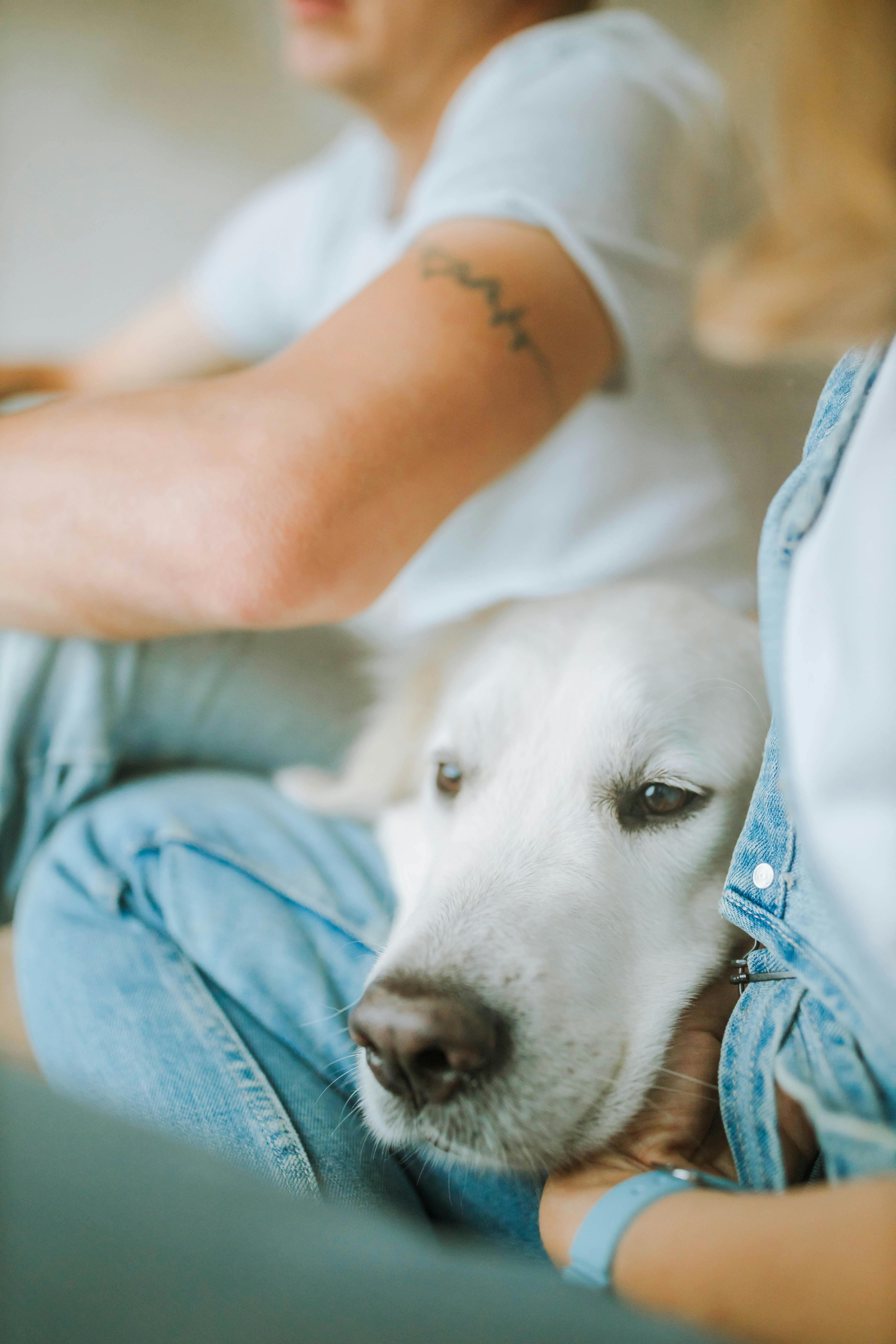
Dogs are more than just pets; they are family members, and their health is a top priority for every owner. One of the most noticeable aspects of a dog’s health is often their nose. A wet, cold nose is commonly thought to be a sign of a healthy dog, but have you ever wonder why do dogs have wet noses? Or how to keep your dog’s nose healthy and moist? This article explores these fascinating questions while providing useful tips every owner should know.
Why Do Dogs Have Wet Noses?
You might think, “Why is my dog’s nose always wet?” Well, there’s actually several reasons behind this. The moistness of a dog’s nose serves important functions, such as:
- Temperature Regulation: Dogs don’t sweat like humans do. Their noses help regulate their body temperature by evaporative cooling.
- Enhanced Sense of Smell: A wet nose traps scent particles more effectively, allowing dogs to better process smells in their environment.
- Health Indicator: While a wet nose isn’t a complete indicator of health, it can signal hydration levels. A dry nose might mean dehydration or illness, but not always.
Fun Facts About Dog Noses
Did you know that dog’s noses are unique? Just like human fingerprints, no two dog noses are the same! Here are some fun facts:
- Nasal Patterns: Each dog has a distinct nose print which can be used for identification.
- Scent Power: Dogs have up to 300 million scent receptors in their noses, compared to a human’s 5 million.
- Temperature Sensing: A dog’s nose can detect temperature changes, helping them sense things in their environment better.
Keeping Your Dog’s Nose Healthy and Moist
So how can you make sure your dog’s nose stays moist and healthy? Here are some practical tips:
- Hydration: Always ensure your dog has access to fresh, clean water. Dehydration can lead to a dry nose.
- Humidity Levels: If you live in a dry climate or use heating systems, consider using a humidifier. This can help keep your dog’s nose moist.
- Diet: Feed your dog a balanced diet rich in omega-3 fatty acids. Foods like salmon oil, flaxseed, and certain dog treats can promote healthy skin and noses.
- Regular Vet Check-ups: Routine vet visits are crucial for catching potential health issues early.
- Avoid Harmful Products: Be cautious with cleaning supplies or perfumes that may irritate your dog’s sensitive nose.
Signs of Nose Problems in Dogs
It’s important to keep an eye on your dog’s nose. Here are some signs that something might be wrong:
- Cracked or Dry Nose: If your dog’s nose is consistently dry or cracked, it could be a sign of dehydration or other health issues.
- Discoloration: If the color of your dog’s nose changes significantly, it may indicate health problems.
- Excessive Sneezing or Nasal Discharge: This can be a sign of allergies or infections.
Natural Remedies to Moisturize Your Dog’s Nose
If your dog has a dry nose, there are natural remedies that can help:
- Coconut Oil: You can apply a small amount of coconut oil on your dog’s nose. It acts as a natural moisturizer.
- Shea Butter: This is another great option to soothe and hydrate their nose.
- Beeswax Balm: There are specially formulated balms available, but you can also find natural options that can keep their nose moist.
Common Misconceptions About Dog Noses
Many owners have myths about dog noses. Here’s a quick breakdown of some misconceptions:
- Wet Nose = Healthy Dog: While a wet nose can indicate health, a dry nose doesn’t always mean your dog is sick. Various factors can cause this.
- Dogs Only Use Their Noses to Smell: Dogs use their noses for more than just smelling; they also use it to explore and interact with their environment.
- Only Certain Breeds Have Wet Noses: All dogs can have wet noses, regardless of breed.
Keeping your dog’s nose healthy and moist requires a bit of attention, but it ultimately contributes to their overall well-being. By understanding the reasons behind the wet nose phenomenon and implementing these tips, you can ensure your furry friend stays happy and healthy. Remember, every dog is unique, and regular check-ups with your veterinarian can keep you informed about your dog’s specific needs.
The Evolutionary Purpose of Wet Noses in Dogs: A Look at Their Ancestry
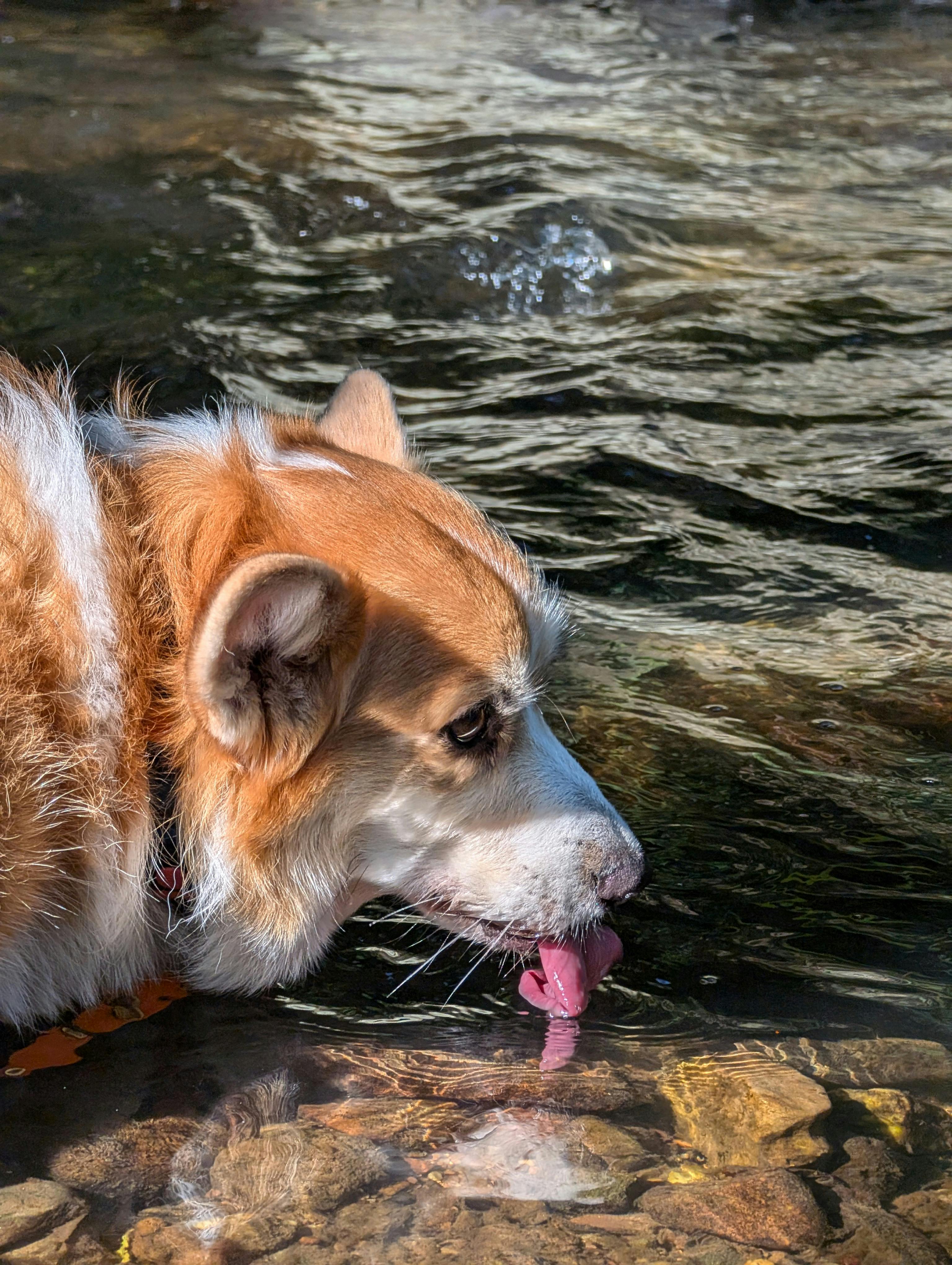
Dogs, man’s best friend, have many unique features, but one of the most curious is their wet noses. It’s not just for show or because they forgot to wipe their faces. In fact, the evolutionary purpose of wet noses in dogs is fascinating, revealing deep connections to their ancestry and biology. So, why do dogs have wet noses? Let’s explore this intriguing aspect of our furry companions!
The Science Behind Wet Noses
First off, the wetness of a dog’s nose isn’t random. It serves several important functions. A dog’s nose is covered in a thin layer of mucous which helps to enhance their sense of smell. When scent molecules land on their moist nose, it helps trap them, allowing dogs to better analyze and identify different smells. Research shows that dogs have an extraordinary sense of smell, estimated to be between 10,000 to 100,000 times more sensitive than humans.
Ancestral Roots
Dogs evolved from wolves, and their noses have adapted over time. Historically, a wet nose was beneficial for survival. Wet noses helps with thermoregulation. When dogs pant, the evaporation of moisture from their noses helps cool down their body temperature. This ability can be traced back to their ancestors who needed to maintain their body heat while hunting or foraging.
Key Benefits of Wet Noses
- Enhanced Smell: Wetness improves the ability to pick up scents.
- Body Temperature Regulation: Helps keep dogs cool during hot weather.
- Health Indicator: A wet nose can indicate a healthy dog, while a dry nose might suggest dehydration or illness.
How Wet Noses Work
The anatomy of a dog’s nose is quite complex. It contains a large number of olfactory receptors—about 300 million compared to humans, who have around 5 million. Each sniff allows for different molecules to interact with these receptors, and the moisture on the nose assists in this process. Here’s a breakdown:
- Olfactory Receptors: Detect scent particles.
- Mucous Layer: Traps scent particles for better analysis.
- Nasal Turbinates: Structures that help warm and humidify air.
Comparing Wet and Dry Noses
Not all dogs have the same type of noses. Some breeds may have wetter noses than others. Here’s a simple comparison:
| Characteristic | Wet Nose | Dry Nose |
|---|---|---|
| Scent Detection | Highly effective | Less effective |
| Temperature Regulation | Efficient | Less efficient |
| Health Indicator | Often healthy | May indicate illness |
Fun Facts About Dog Noses
- Dogs’ noses are like fingerprints; each one is unique!
- A dog’s sense of smell can be so precise that they can detect certain diseases, like cancer, in humans.
- Wet noses are often cooler than the rest of their body, which helps them cool down.
Cultural Perspectives
Different cultures have varying beliefs about a dog’s nose. In some traditions, a wet nose is seen as a sign of a friendly and healthy dog, while a dry nose might be interpreted as a sign of trouble. However, many veterinarians stress that a dog’s overall behavior and health indicators should be prioritized over the moisture of their nose.
Practical Tips for Dog Owners
If you’re a dog owner, it’s important to monitor your dog’s nose as part of their overall health. Here are some practical tips:
- Hydration: Ensure your dog has access to fresh water.
- Temperature Check: If your dog’s nose is excessively dry, check for signs of overheating or dehydration.
- Regular Vet Check-ups: Routine visits to the vet can help address any health issues early.
The Bottom Line
So, the question, why do dogs have wet noses? It’s not just a quirk but a vital part of their biology that aids in survival and communication. Understanding the evolutionary purpose behind this fascinating feature gives us deeper insight into our dogs’ health and behaviors.
As we continue to bond with our canine companions, knowing the reasons behind their unique traits can enrich our relationship with them. The next time you see your dog’s wet nose, remember it’s a marvel of evolution, designed for their survival and well-being.
Conclusion
In conclusion, the wet noses of dogs serve multiple important functions, contributing to their overall health and sensory perception. The moisture on a dog’s nose enhances their sense of smell, enabling them to detect scents with remarkable accuracy, which is crucial for communication and exploring their environment. Additionally, a wet nose helps regulate body temperature, acting as a natural cooling mechanism. While a moist nose is generally a sign of good health, variations can occur due to factors such as activity level and environmental conditions. Understanding the significance of a dog’s wet nose can deepen our appreciation for these loyal companions. If you notice any drastic changes in your dog’s nose moisture or overall health, don’t hesitate to consult your veterinarian. By staying informed and attentive to your pet’s needs, you can ensure they lead a happy and healthy life.

